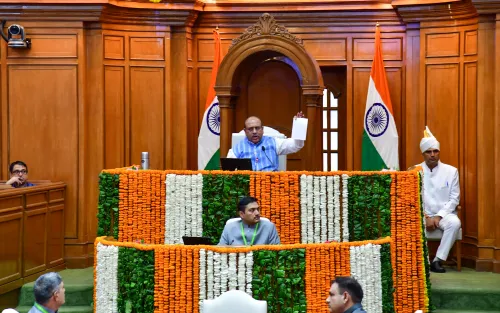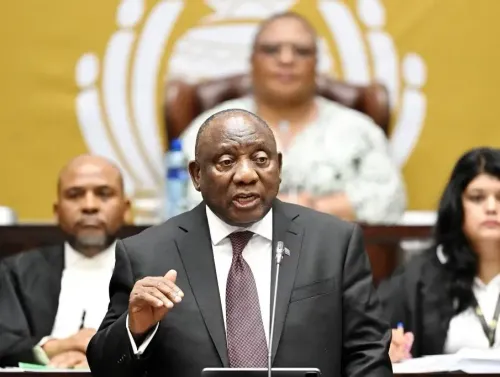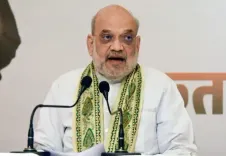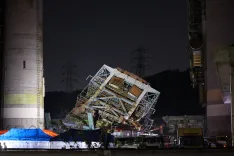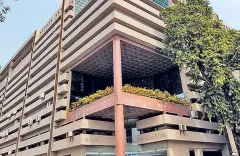When Will the 5th Round of Iran-US Talks Happen in Rome?
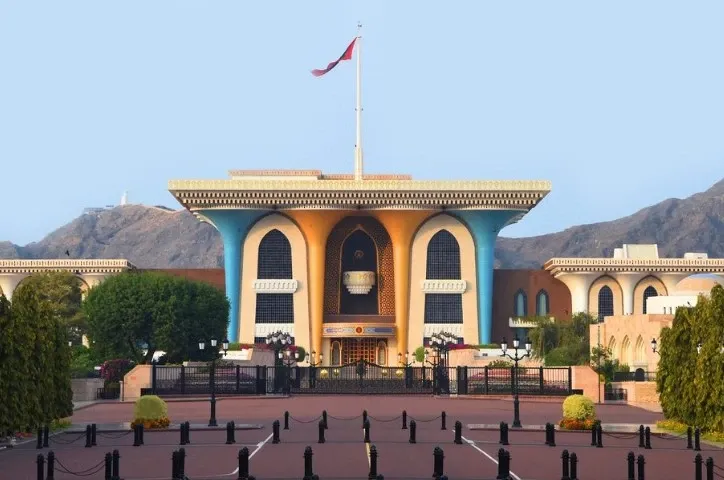
Synopsis
Key Takeaways
- The fifth round of indirect talks between the US and Iran is set for Friday in Rome.
- Oman is facilitating these discussions aimed at reviving stalled diplomacy.
- Iran's Foreign Minister has indicated concerns over US demands.
- Uranium enrichment remains a critical sticking point in negotiations.
- Potential consequences of sanctions reimposition could be significant.
Muscat/Tehran, May 22 (NationPress) Omani Foreign Minister Sayyid Badr bin Hamad bin Hamood Albusaidi has announced that the fifth round of indirect discussions between the US and Iran is scheduled to take place in Rome this Friday. This information was shared via a post on his official X account.
The objective of these talks is to revive stalled negotiations concerning Iran's nuclear program and the sanctions imposed by the US, with Oman facilitating the discussions, as reported by Xinhua news agency.
Since April, four rounds of discussions have occurred, three in Muscat and one in Rome.
On Wednesday, Iranian Foreign Minister Seyed Abbas Araghchi stated that Tehran is still deliberating on its participation in the upcoming talks due to what he termed as the US's excessive demands, according to Iran's state news agency IRNA.
"We will resist excessive demands at the negotiating table, yet we have never abandoned diplomacy," Araghchi remarked, adding that uranium enrichment will persist "with or without an agreement".
He emphasized that Iran is willing to provide transparency regarding its nuclear activities but expects discussions to also cover the lifting of US sanctions and embargoes imposed on the nation.
During a Cabinet meeting in Tehran, Iranian First Vice President Mohammad-Reza Aref stated that uranium enrichment on Iranian soil is the "red line" for the nation's establishment in its indirect negotiations with the US.
Both US and Iranian officials described the recent round of talks in Muscat on May 11 as "difficult but useful," noting a generally positive atmosphere despite ongoing differences.
In recent days, US officials have urged Iran to completely halt uranium enrichment, a point Tehran has consistently deemed as non-negotiable.
This week, Iran's Supreme Leader Ayatollah Ali Khamenei expressed skepticism regarding the talks, stating, "We don't believe it will lead to any outcome. We don’t know what will happen."
Khamenei added, denying Iran's right to enrich uranium was "a big mistake." His comments followed the US's chief negotiator in the discussions, Steve Witkoff, expressing opposition to any Iranian uranium enrichment.
"An enrichment program can never exist in the state of Iran ever again. That's our red line. No enrichment," Witkoff stated in an interview published on May 9.
Iran has repeatedly insisted that its right to maintain uranium enrichment is "non-negotiable." On Sunday, Foreign Minister Araghchi affirmed that Iran would continue enriching uranium "with or without a deal" concerning its nuclear program.
The Islamic Republic currently enriches uranium to 60 percent, which is far above the 3.67 percent limit specified in the 2015 agreement but below the 90 percent threshold required for a nuclear warhead.
In 2018, Trump effectively dismantled the deal by unilaterally withdrawing and reinstating sanctions on Iran's oil exports and banking sector.
A year later, Iran began to roll back its commitments to the agreement, which had previously offered sanctions relief in exchange for UN-monitored restrictions on its nuclear activities.
The three European nations that are parties to the 2015 accord are contemplating whether to activate the "snapback" mechanism, which would restore UN sanctions in response to Iranian non-compliance. This option will expire in October.
Earlier this month, Araghchi cautioned of "irreversible" consequences if Britain, France, and Germany moved to reimpose sanctions.



